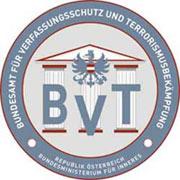Absurdities: A document without an author, a quote without an attribution, and an assurance without proof
The Inuit people are alleged to have dozens of words for snow. While the abuse of the English language continues unchecked in government, journalists covering national security issues need dozens of words to describe the different forms of absurd. Claiming the tail is wagging the dog when you might be viewing a pack of gray wolves against an overcast sky is a fitting metaphor. Regardless of what is the tail, what is the dog, or what is the wolf, two things are clear: German Prime Minister Angela Merkle is willing to accept any absurd justification for American spying on her citizens from NSA head Keith Alexander and ignore any evidence to contrary even if it comes from within her own government.
In a bizarre scene reported on by the German magazine Der Spiegel, four of the highest ranking German intelligence officials Gerhard Schindler (head of the BND), Hans-Georg Maassen (head of the Federal Office for the Protection of the Constitution), Klaus-Dieter Fritsche (State Secretary at the German Interior Ministry), and Günter Heiss (Angela Merkel's intelligence czar) were driven to NSA headquarters to meet with General Keith Alexander on August 5, 2013. In Alexander's office, an absurd scene ensued.
It is telling enough that Alexander did not jaunt off to Germany to reassure one of America's key allies about NSA spying and their citizens. He received the German envoys in his fortress where he is in charge. When he received his German counterparts he presented them with a single page document in both English and German. The document had no author, no signature and no letterhead. The words on blank paper assured the German government that the NSA's activities were and are legal in the United States, and that the NSA observed the terms of all treaties and agreements with their German counterparts. This was the source of various news stories on the so-called gentleman's agreement between the two nations to not spy on each other.
After this bizarre ritual ended, the German spies then met with General Clapper, who reportedly gave them the same verbal assurances. Although the Clapper has lied to Congress, which has the power to jail him for doing so, the German spies apparently took his claims at face value. They are apparently used to receiving the least untruthful answer. They immediately returned home and reported that everything was fine, permitting Merkel's chief of staff, Ronald Pofalla, to declare the scandal to be over so far as German is concerned: "The allegation of the purported total surveillance in Germany can now be dismissed.”
Pofalla, at a minimum, was apparently not acquainted with a report issued in March by the German Economics Ministry on a serious security flaw in Microsoft's Windows 8. Purpose-built Windows 8 devices have a chip built into them that controls what software can be trusted to be installed on the device. The chip, called a TPM for Trusted Program Manager, interfaces with the operating system to keep software that has not been directly approved by Microsoft from functioning. Although this is allegedly to prevent malware from entering the system, it could be used as a form of digital rights management. Currently settings allow the user to opt out of the TPM.
According to the German publication Zeit Online, the new 2015 version of the TPM (called TPM 2.0) will not allow a user to opt out and can not be deactivated in any way yet known to the public. The TPM was designed by a consortium of companies called the Trusted Computing Group. This consortium includes Microsoft, Hewlett Packard, Cisco, Intel, AMD and Wave Technologies. At the last TPG stakeholders meeting the new no-opt out standard was discussed and retained. An unattributed quote in Zeit Online states simply “The NSA agrees.”
The NSA clearly has a hand in this new security technology. Microsoft, as Free Press readers know, has often gone to extra lengths to help the NSA spy on it's customers. This latest innovation has chilling effects. Should the TPM work as desired, the NSA could make it impossible to install privacy enhancing software such as TOR, PGP or Pidgin-OTR on any Windows 8 system if it so desired. Further the TPM itself could serve as a back door.
The German government is fully aware of the implications. The report from the Economics Ministry is laced with quotes such as "the security objectives 'confidentiality' and 'integrity' is no longer guaranteed." and “The use of 'trusted Computing' technique in this form ... is unacceptable for the federal administration and the operators of critical infrastructure.” The report is aware that the German could be faced with a "loss of full sovereignty over information technology.”
The German government is of course a third party partner in the NSA's worldwide spying empire. They receive what intelligence the NSA gives them. They are apparently willing to pay the price in industrial espionage and loss of soveriegnty that goes with accepting bland assurances from the operators of post-constitutional America's secret state police agencies. There is a special absurdity to “intelligent” men in the intelligence field trusting an unsigned memo on paper without letterhead delivered by a serial liar. The absurdity grows when German scientists have publicly reported that the same agency is openly building back doors into the next generation of phones, laptops and tablets. At least Free Press readers are now forewarned about the new backdoors in Windows 8.

